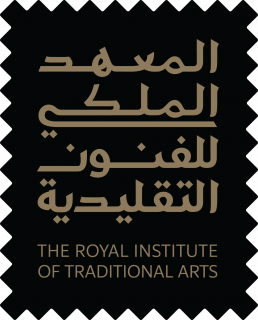Jeddah – Saudi Arabia
Two programmes delivered at the Royal Institute of Traditional Arts – Jeddah branch, Saudi Arabia.

Vision
The delivery of the two programmes in Jeddah, Saudi Arabia, is made possible through the shared vision and partnership between The King’s Foundation School of Traditional Arts, The Royal Institute of Traditional Arts and the Jeddah Historic District. Both programmes are centred on the historic Al Balad district, where TRITA is located.
Together, we offer participants an education experience at the highest level alongside a direct engagement in the vibrant regeneration of Al Balad. The programmes focus on using the architectural heritage of Al Balad as an educational and training resource through analysis and research, as well as hands-on practical training on the buildings in the Balad. Both programmes offer its students and graduates the opportunity to become involved in the Ministry of Culture’s restoration projects in Jeddah’s Balad, and create a vibrant community of designers and craftsmen. The programmes use the environment of Al Balad as a learning resource and contributes towards the regeneration of the architecture and the crafts that belong to the wide cultural heritage of Jeddah and Saudi Arabia. The Centre integrates traditional arts and crafts in the contemporary context, by teaching the highest standards of artistic and technical skills based on traditional craft techniques.
Building Arts & Crafts Diploma
A partnership between The Royal Institute of Traditional Arts, Jeddah Historic District and The King’s Foundation School of Traditional Arts, delivered at The Royal Institute of the Traditional Arts – Jeddah Branch, Saudi Arabia

About the Programme
The Building Arts & Crafts Diploma is a two-year programme that is structured as a set of modules centred around craft and design experiences.
The programme provides a strong foundation in traditional Islamic art and crafts, architecture and design. It is created to develop students’ design knowledge and crafts skills to eventually undertake regeneration and commercial projects.
Open to craftsmen, architecture and art students, engineers and designers, our Diploma Programme offers opportunities to those who wish to become proficient designers to engage with the building arts and crafts of Al Balad. It also supports graduates to pass on the traditional knowledge and skills they have learnt and developed.
The course is structured as a series of craft and design modules, with it’s curriculum focused on the architectural heritage of Al Balad. Students undertake studies that develop both their design skills and crafts techniques supported by project led learning. The second year culminates in a major project set within Jeddah’s historic houses.
On the craft modules students learn a variety of craft techniques and transferable skills based on a master-apprentice method. Field studies in Al Balad and exposure to restoration work in Jeddah will provide a vital aspect of understanding the contextual importance of traditional craft skills.
On the design modules students study the language of the traditional Islamic arts and that of Jeddah’s Al Balad, which helps them achieve a high level of artistic literacy and design application. Furthermore, they learn design topics that are specific to each craft and supports the students’ technical practice.
This education process integrates design skills and craft workshop experiences for students to reach an integrated understanding of how things are designed and made. Research and practical engagement with the rich cultural heritage of Al Balad will inspire their contemporary expression of Jeddah’s living heritage.
What will I learn on the Programme?
The Royal Institute of Traditional Arts – Jeddah in partnership with The King’s Foundation School of Traditional Arts offers a Building Arts & Crafts Diploma for participants to engage with the cultural heritage of Saudi Arabia. The programme integrates crafts skills and design principles.
The programme duration is two academic years, consisting of 6 terms, 3 terms per year
Programme start date: 23rd September 2023
Programme end date: June 2025
Modules of Study
Year 1
Module 1: The Visual Design Language of Al Balad
- Introduction to Geometry
- Biomorphic Design 1: Foundation
- Geometry 2: Patterns and Proportion
- Biomorphic Design 2: Composition
- Decorative Painting 1: Methods and Materials
Module 2: Technical Craft Skills – Design and Practice
- Decorative Painting 2: Practical Craft Skills
- Introduction to Woodcrafts (Mangour, Woodcarving, Carpentry)
- Gypsum Carving: Design and Practice
- Building Crafts 1
- Building Crafts 2
Module 3: Project-Led Learning
- Project Part 1: Concept and Design
- Project Part 2: Production
Year 2
Module 4: Contextual Design Research and Practice
- Geometry 3: Pattern and Structure
- Al Balad Research Book Project
Module 5: Electives – Craft Skills Practice
- Wood Carving
- Traditional Joinery (ta’asheeq) and Inlay (tata’eem)
- Mangour
- Gypsum Carving
- Decorative Painting (tazouqat)
- Ceramics: Tilemaking
Module 6: Project-Led Learning
- The Heritage Project
Regeneration & Design Projects
The Programme includes study visits and design projects specific to traditional houses in Jeddah’s Balad. Students will do analysis and research work, studio-based design work, and design projects for the regeneration of heritage buildings in Al Balad. Students will learn all the skills necessary to make art and crafts elements for these projects, including architectural drawing and sketching skills.
Who is the programme for?
Craftsmen, artists, architects, designers, researchers and anyone who wishes to learn and practice traditional arts and crafts.
The Programme teaches:
- The language of traditional arts and architecture through the study of the key elements of traditional Islamic art and the universal principles that underpin them.
- About the vital importance of cultural heritage in the contemporary context of Jeddah’s building arts and crafts.
- Traditional arts and crafts skills through an apprenticeship system with master craftsmen.
- Practical skills and design knowledge that enables you to contribute to the regeneration of the building arts and crafts of Saudi Arabia.
Admission Requirements
The Diploma is 2 academic years with full time attendance required from Sunday – Thursday 9am – 4.30pm from September 2023 to June 2024 & September 2024 to June 2025
Minimum age requirements is 21 years old.
Applicants must be a Saudi national or hold a valid residence permit.
Applying
The Building Arts & Crafts Diploma is delivered by The King’s Foundation School of Traditional Arts at The Royal Institute of Traditional Arts Jeddah Branch (TRITA – Jeddah Branch).
Applications for the academic year of 2023-2025 have closed and teaching has commenced. The next round of applications will open in 2025.
The application process is handled by TRITA’s Academic Affairs and it will run as follows:
- Step one: complete and submit the registration form
- Step two: Shortlisted candidates will be invited for online interviews – applicants are required to present a portfolio of work. Further information will be provided on invitation.
- Step three: Successful applicants will be notified of enrolment procedure and start dates.
Commitment
Applicants are required to attend the Diploma full time from Sunday – Thursday, 9am – 4.30pm
Heritage of Al Balad: Traditional Woodcrafts
A 17-Week Long Training programme in Traditional Carpentry and Mangour Techniques

The knowledge of the wood crafts of Al Balad is at risk of being lost, but this knowledge remains essential, today more than ever, for the preservation of architectural heritage.
We are pleased to partner with The Royal Institute of Traditional Arts and Jeddah Historic District to offer a new and unique training program focused on the wood crafts of Al Balad. The ‘Heritage of Al Balad Program: Traditional Wood Crafts’ delivers the highest level of technical craft training with the goal of creating a new generation of craftsmen to be able to engage in architectural heritage projects in Al Balad.
Delivered by experienced local and international masters and teachers, the course teaches traditional carpentry and joinery techniques found in Al Balad. These include Tasheeq panelling and Mangour screens. Joinery techniques are essential to the constructions of doors as well as larger architectural features, such as rowasheen. Mangour screens, made of intricately carved interlacing wooden batons, are one of the most distinguishable of the ornamental crafts of Al Balad. It is of the utmost importance for any trainee in the architectural crafts of Jeddah to learn the design language and methods for constructing these structures, and that is what this programme will focus on.
What will I learn on the programme?
Course Summary
The course first introduces trainees to essential geometric drawing skills that will allow them to understand the decorative language of Albalad and create accurate preparatory drawings. Trainees are introduced to the correct use of tools and materials as well as basic joinery techniques, which are later developed further through a period of specialization. Finally, trainees will work on a joint project related to project in Al Balad. Successful trainees, depending on their level of accomplishment, can continue further with wider training at the Centre, eventually becoming involved in professional practice on renovation projects in Al Balad.
The course is structured in three terms, where you will grow your skills levels as follows:
Term 1 (Introductory Level)
Craft skills taught:
- Geometry of AlBalad – Necessary drawing skills needed to recognise patterns related to the wood crafts and generate workshop drawings.
- Introduction to Woodwork – Basic Carpentry Skills. General knowledge of woodwork and carpentry practices.
- Geometry of Mangour – Learn to compose a mangour design and draft accurate preparatory drawings for the craft application.
- Introduction to Mangour – Learn the main types of frames and joinery used in the making of mangour screens.
Term 2 (Level 1)
Craft skills taught:
This part of the course advances the students to Level 1. It requires students to specialise in two techniques:
- Ta’asheeq (traditional joinery). Learn to construct a decorative yet structurally sound panel for a Roshan design or door panel, using geometric shapes connected with interlocking Mortise and Tenon joints.
- Mangour (traditional screens). Explore the craft of mangour in a more in-depth way than the introductory course. Students will produce a larger sample with more complex angles, creating a variety of design features.
Term 3 (Level 2)
Craft skills taught:
The final 5 weeks of the course are dedicated to the manufacturing of items according to a set project.
Learning Outcomes
By the end of the course, trainees will have gained:
- A general understanding and good working knowledge of the traditional wood crafts and decorative motifs found in Jeddah’s Al Balad.
- A practical working knowledge of traditional tools, materials and techniques related to basic carpentry and joinery found in the heritage of Al Balad. Know how to work safely in a wood workshop.
- Exposure to projects related to the restoration of traditional houses in Al Balad Jeddah.
Course Details
Location: Royal Institute of Traditional Arts – Historic Jeddah (Al Balad)
Course start & end dates: March 3, 2024 to July 25, 2024
Who is the course for?
This course is a dedicated training for craftsmen who wish to deepen their knowledge further as a vocational training.
Applicants to the course require some previous experience, or a desire to learn and use traditional carpentry and joinery skills in a professional capacity later on. The course will offer trainees engagement with projects in Albalad and provide opportunities for practice and professional development.
Target Group
- The course is open to individuals in the community above 18 years old.
- Those with basic carpentry skills, resilience, and patience.
- Full commitment to attending.
Prerequisites
- The applicant must be a Saudi national or hold a valid Saudi residency.
- Trainees must adhere to the program’s rules and regulations, including attendance requirements, at The Royal Institute of Traditional Arts.
Achievement Standards
- Achieve a 85% attendance rate in the total program hours and workshops to receive a certificate.
- Demonstrate discipline and follow institute instructions, exhibiting appropriate behaviors such as effective communication, teamwork, respect for peers and trainers, safeguarding institute property, and adherence to rules.
- Be able to work efficiently and achieving good standards of craftsmanship while working on individual pieces as a well as a set group project.
Partners



